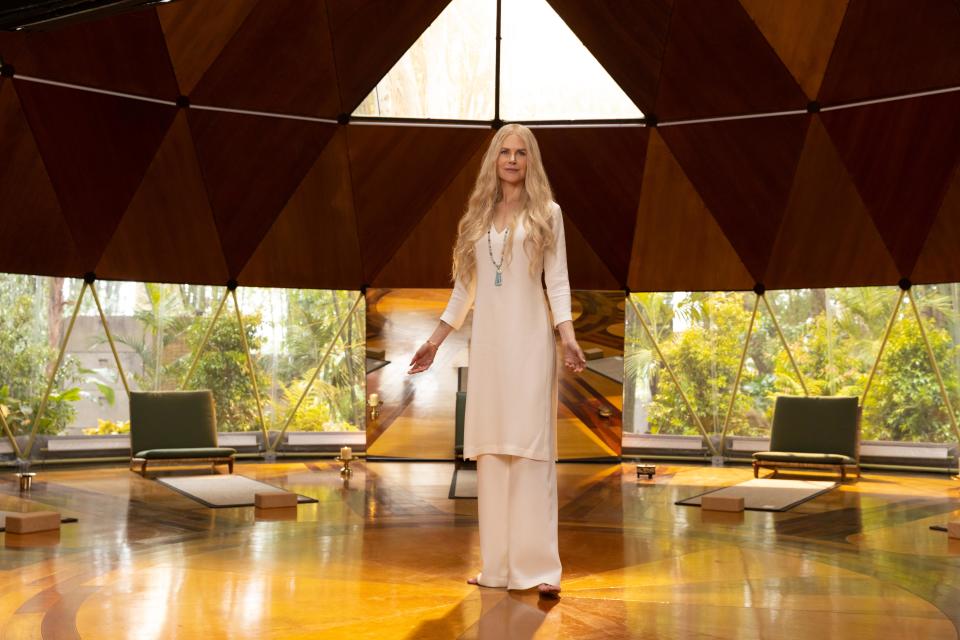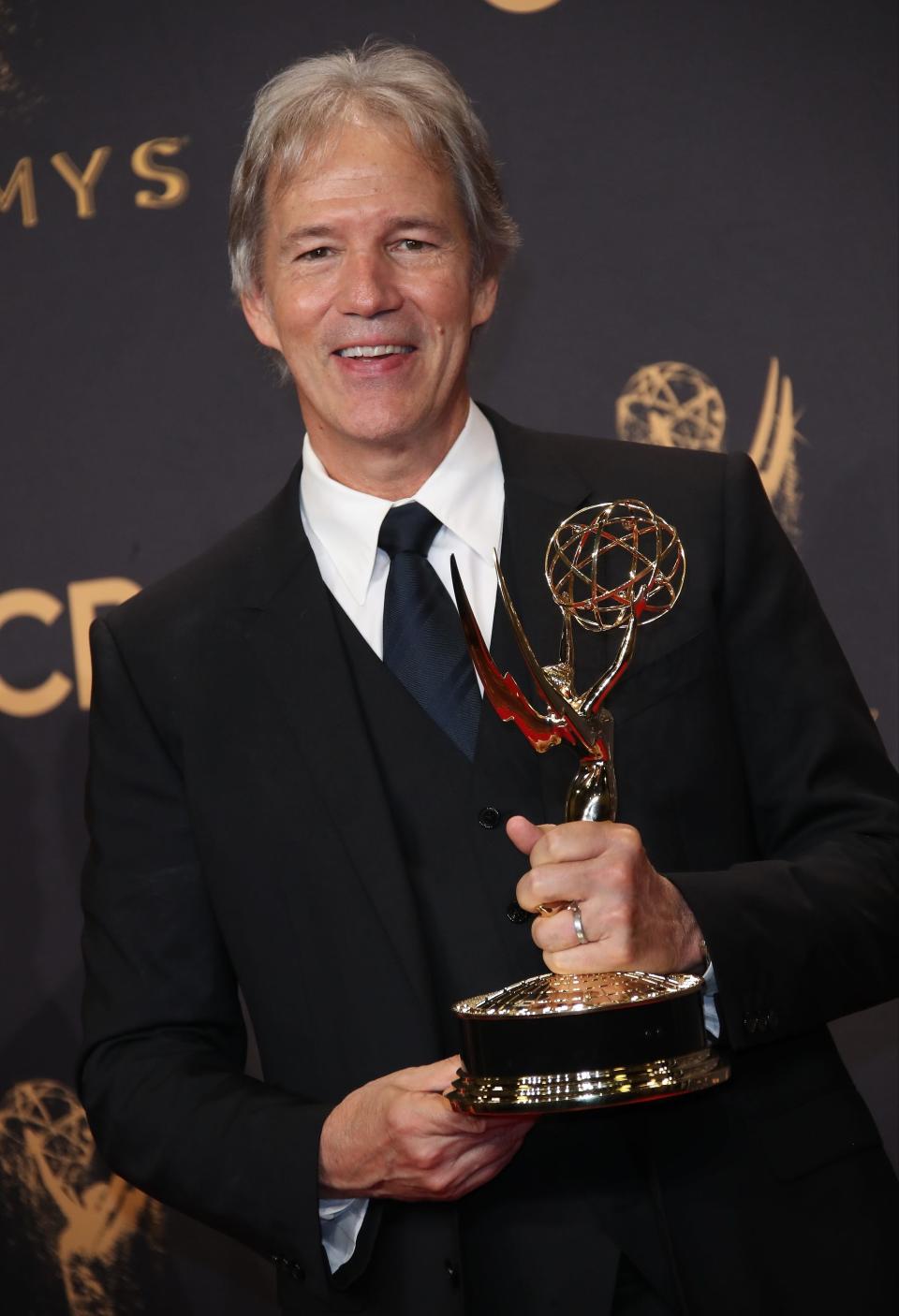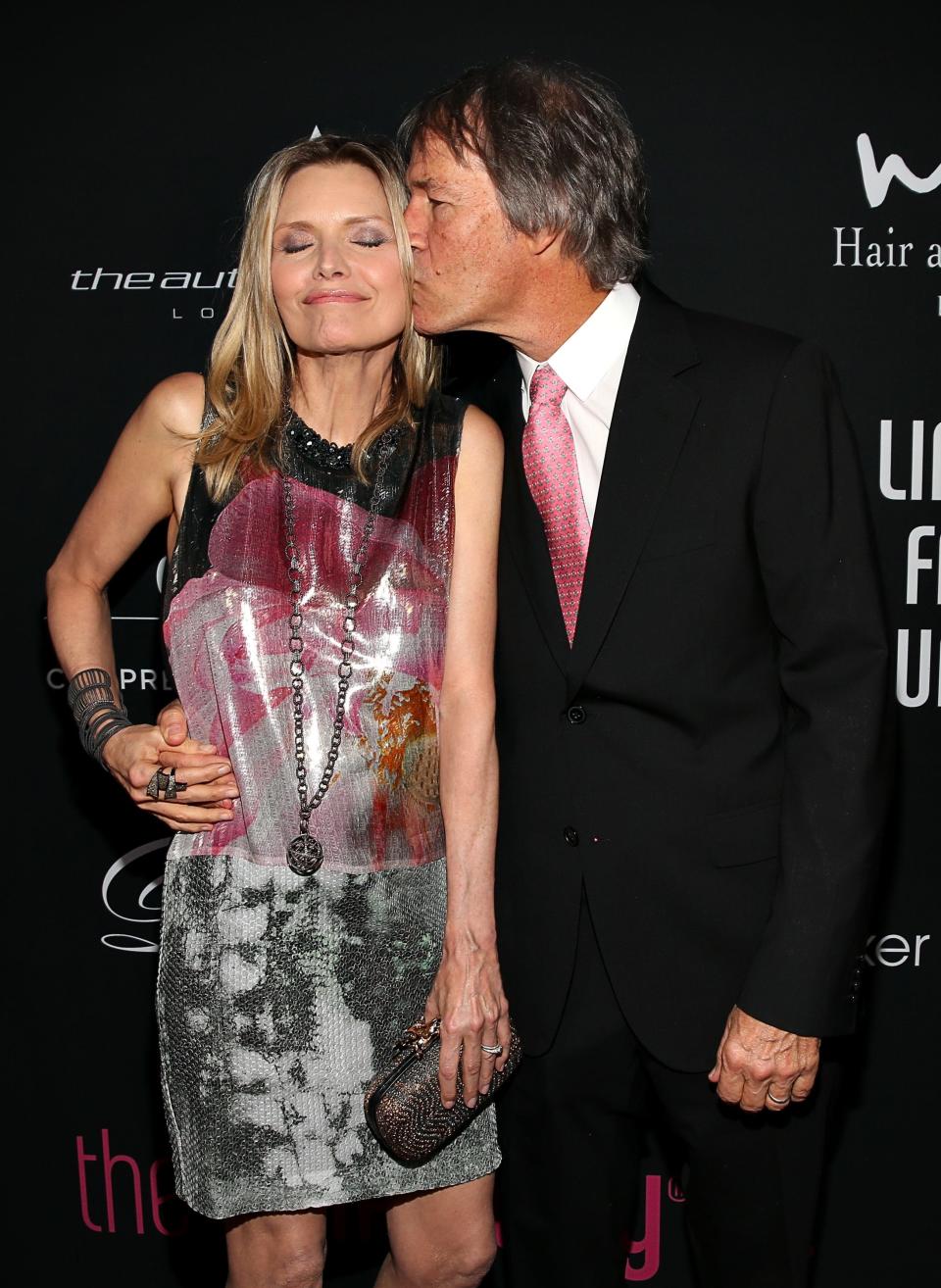'Nine Perfect Strangers': David E. Kelley knows Nicole Kidman drama isn't 'everybody's cup of tea'
- Oops!Something went wrong.Please try again later.
- Oops!Something went wrong.Please try again later.
- Oops!Something went wrong.Please try again later.
- Oops!Something went wrong.Please try again later.
David E. Kelley is something of a masochist.
For more than three decades, the TV super producer and writer has shepherded legal dramas ("The Practice"); comedies ("Ally McBeal"); and nail-biting mysteries ("Big Little Lies," "The Undoing") to the small screen, winning 11 Emmy Awards to date.
His latest is Hulu's "Nine Perfect Strangers" (all eight episodes streaming now), which ended its limited run on Wednesday. Based on Lianne Moriarty's 2018 novel, the drama follows a group of troubled individuals (including Melissa McCarthy and Regina Hall) who take part in a wellness treat, led by a mysterious guru (Nicole Kidman) with questionable practices.
Review: Nicole Kidman and Melissa McCarthy can't save Hulu's messy 'Nine Perfect Strangers'
"There's a line in the show, 'People come for the suffering,' and that's probably applicable with me," Kelley, 65, said on a recent Zoom call. "I read the book and I was drawn to these broken characters. That's always appealed to me in projects, if I can explore characters that are aspirational at heart but broken in their functionality. And that's what happened here: The more you get to know all of them, it adds up to a very affirming piece on humanity, which at my ripe old age, is also what I'm drawn to."

"Nine Perfect" marks Kelley's third collaboration with Kidman, after limited series "The Undoing" and two seasons of HBO's "Big Little Lies." (Next they will executive produce "Love and Death" for HBO Max.)
"He's very thoughtful and incredibly bright, and just writes from the heart," Kidman says. "This is the man who did 'Ally McBeal' and all those courtroom dramas. He just knows television, but he also knows characters."
'Should I be offended?': Nicole Kidman's creepy 'Nine Perfect Strangers' guru was written for her
Question: "The Undoing" became a ratings and social media phenomenon last fall, with viewers trying to guess the killer from week to week. Were you surprised by its success?
David E. Kelley: I never have any sense of false confidence because every time you throw it out there, you duck for cover and hope there's (an audience) that will support it. On "The Undoing," I probably felt more confident because the plotting was pretty tight ... and delivers with a certain propulsion I felt good about. Now "Nine Perfect Strangers," it's out there. It's wild. It's certainly not going to be everybody's cup of tea, but I felt good about the characters. My sense was that if you put in the time and paid attention, ultimately they would get inside you and you would be rewarded for that effort. But I braced for the idea that people could put this on and go, "What?"

Q: It seems that more streamers, such as Disney+ and Hulu, have recently embraced releasing episodes week to week as opposed to all at once. How important is the weekly model in building an audience?
Kelley: They both have value. We saw in "Big Little Lies," it was actually the social media and the audience connecting with each other between episodes that caused the compounding of viewership. Same with "The Undoing": The fact that the audience was able to be armchair sleuths and try to figure out who did what fed into the intrigue and popularity of the show. But "The Undoing" would have been just as fine on Netflix or Amazon, because that was a binge-worthy show. "Nine Perfect Strangers," you could go either way on. It's bingeable if you want to keep going, but there's something to be said for taking a step back and trying to process the episodes.
Q: ABC's "Big Sky" (Season 2 premiering Sept. 30, 10 EDT/PDT) is your first network show since CBS' "The Crazy Ones," which was canceled in 2014 after one season. Could you see yourself continuing to work in broadcast?
Kelley: It's all project-driven. If I thought something would be best presented on broadcast and the network was on the same creative page as we were, then sure, I would try it. But I would still say the presumption is in the favor of premium (cable) or streaming. Most broadcast projects are designed to be marathons. They become commercially viable at 50 episodes or more, and I don't want to write that many. The limited series is perfect for me. You can take six, seven, eight hours, which is plenty of time, and move on to something else.
Q: You were a lawyer before you became a TV writer. When did your interest in the law start?
Kelley: I liked law shows when I was a kid and I was fascinated with the idea of law, because it's our best means of legislating social and moral behavior. And yet, it is very inexact and flawed. I grew up in a sports family, so life was about winning and losing a lot and law provided that. So I went to law school and quite liked it, but the practice of law was a little less exciting than the study of it. I missed writing and decided to do it for a hobby, and lo and behold, I wrote this project – a law-based story (that became 1987 film "From the Hip") – and it turned into the conduit from a legal career to one of being a storyteller.
Q: You started as a writer on NBC's "L.A. Law," which ran from 1986-94. What's the most important lesson you learned from co-creator Steven Bochco?
Kelley: The best lesson I learned from him was respect your audience. Especially in the '80s, there was a mentality in certain ranks of, "Dumb it down. The audience is not going to understand. Make it real simple." Steven was just the opposite: "Those people are smarter than you give them credit for and challenge them to keep up. Don't ever start from a place where you assume that you're bringing a greater degree of intelligence to the project than your viewer." And I've never forgotten that.
Q: Is that what you think made "The Practice" and "Ally McBeal" so successful?
Kelley: There are so many variables in the equation, and the minute you think, "I've got the recipe now," good luck (laughs). The failures are a lot easier to quantify; you can see what went wrong. But with the successes, there's just so much that goes into the bowl of soup: the chemistry of the actors, the directors, the team you assemble. If there's one common denominator those shows had, it was that we believed in the characters. We all knew we could get our noses bloody, but we had a passion for the project.

Q: Your wife, Michelle Pfeiffer, just shot a new Showtime series, "The First Lady." Have you ever thought about collaborating?
Kelley: We don't rule it out, but I don't advise it. It's good for us to have our work life and private life separate. But the one common denominator there is Susanne Bier, who directed "Undoing" and did "First Ladies." I love the idea that (those) kept Susanne in the middle of our lives. But other than that, we kind of travel in separate creative orbits.
Q: You've been married for nearly 30 years and have two grown kids. What's the secret to your relationship?
Kelley: I don't know. My theory on success is it's impossible to quantify. You just knock on wood and hope that whatever you're doing, you continue to do it. But 30 years has gone by fast.
This article originally appeared on USA TODAY: David E. Kelley on 'Nine Perfect Strangers,' what made 'Undoing' a hit

